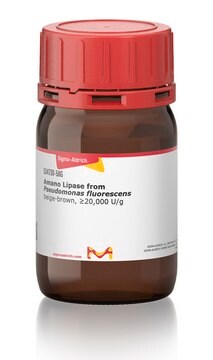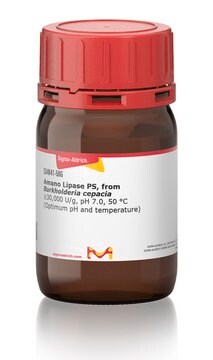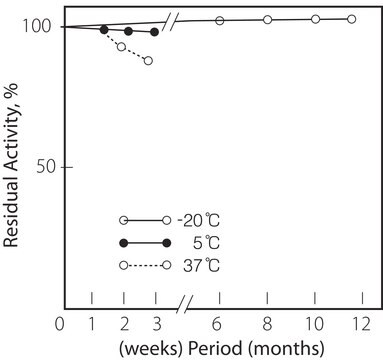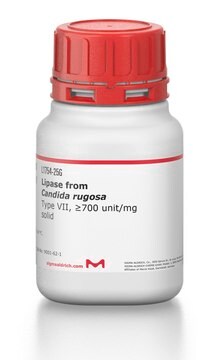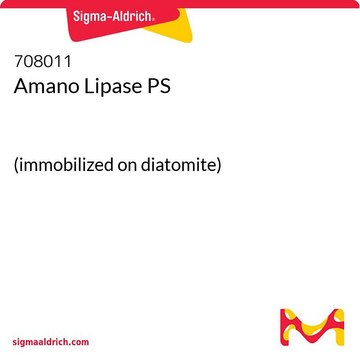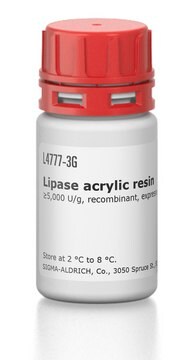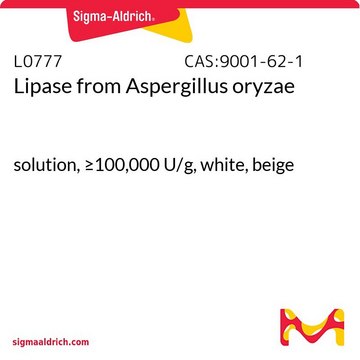62309
Lipase from Pseudomonas cepacia
powder, light beige, ≥30 U/mg
Synonym(s):
PCL, PS Lipase, Triacylglycerol acylhydrolase, Triacylglycerol lipase
About This Item
Recommended Products
biological source
bacterial (Pseudomonas cepacia)
Quality Level
form
powder
specific activity
≥30 U/mg
storage condition
(Tightly closed. Dry)
technique(s)
cell based assay: suitable
color
light beige
solubility
H2O: 2 mg/mL, hazy, faintly yellow
UniProt accession no.
storage temp.
2-8°C
InChI
1S/C11H9N3O2.Na/c15-8-4-5-9(10(16)7-8)13-14-11-3-1-2-6-12-11;/h1-7,16H,(H,12,14);/q;+1/b13-9-;
InChI key
QWZUIMCIEOCSJF-CHHCPSLASA-N
Looking for similar products? Visit Product Comparison Guide
General description
Lipase is a hydrolytic enzyme, found ubiquitously in nature. It belongs to the α/β-hydrolases fold family. Lipase structure contains amphipathic helical lid domain in the active site that helps in interfacial activation of protein.
Application
Lipase from Pseudomonas cepacian has been used to:
- catalyze the degradation of polycaprolactone scaffold
- catalyze the hydrolysis of Morita-Baylis-Hillman acetates during enzymatic kinetic resolution of racemic Morita-Baylis-Hillman adducts
- as a standard for the generation of a calibration curve to determine the activity of lipase produced by microorganisms isolated from sludge derived from an urban wastewater treatment plant for ethanol production.
Biochem/physiol Actions
Unit Definition
Other Notes
enzyme
Signal Word
Danger
Hazard Statements
Precautionary Statements
Hazard Classifications
Resp. Sens. 1
Storage Class Code
11 - Combustible Solids
WGK
WGK 1
Flash Point(F)
Not applicable
Flash Point(C)
Not applicable
Personal Protective Equipment
Choose from one of the most recent versions:
Already Own This Product?
Find documentation for the products that you have recently purchased in the Document Library.
Customers Also Viewed
Articles
Efficient epimerization catalyst for enzyme mediated dynamic kinetic resolution (DKR).
Our team of scientists has experience in all areas of research including Life Science, Material Science, Chemical Synthesis, Chromatography, Analytical and many others.
Contact Technical Service